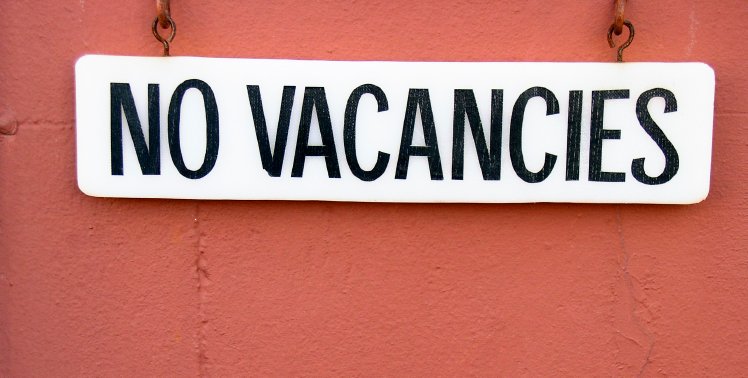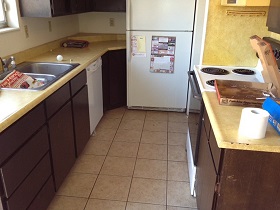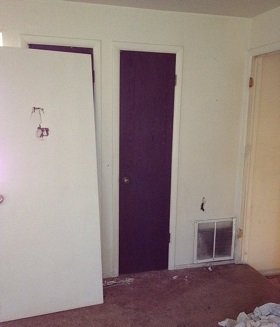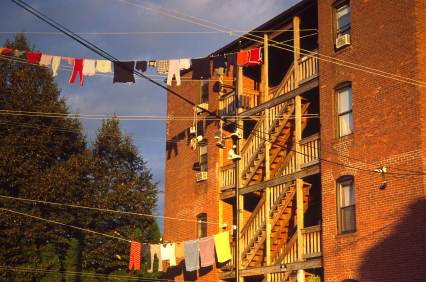Buffett’s annual letter: What you can learn from my real estate investments
 When Warren Buffett pontificates on two of his real estate investments, I think we should pause and pay attention. In this case, the real estate tutorial comes in the annual letter to Buffett’s shareholders!
When Warren Buffett pontificates on two of his real estate investments, I think we should pause and pay attention. In this case, the real estate tutorial comes in the annual letter to Buffett’s shareholders!
My son/partner Josh sent this to me and I think we both had slightly different takeaways. What impressed me is Buffett’s focus on his estimate of the future earnings of the assets when he considered their purchase, not the future value. (Josh is a numbers guy, and he’s going to write about his impressions of Buffett’s article in his monthly newsletter, so I’ll be interested in how his takeaways differ from mine.)
Future earnings. Not future value.
That’s easy on commercial properties, because the value of the property is determined by the income stream that it produces. So you can put all of your attention on increasing the income stream knowing that you are increasing value simultaneously. But homes are valued by comparables, they require a different discipline.
Having just lived through a recession as a landlord and real estate investor, I can tell you that we survived it because of the earnings from our investments. Cash flow saved us and got us through and in a stronger position than before the recession. We didn’t dwell on values because as long as we had positive cash flow, we were in a good position.
Please get a nice cup of your favorite beverage and take a few minutes to ponder Buffett’s message and it’s lesson for real estate investors:
Buffett’s annual letter: What you can learn from my real estate investments
By Warren Buffett
“Investment is most intelligent when it is most businesslike.” –Benjamin Graham, The Intelligent Investor
It is fitting to have a Ben Graham quote open this essay because I owe so much of what I know about investing to him. I will talk more about Ben a bit later, and I will even sooner talk about common stocks. But let me first tell you about two small nonstock investments that I made long ago. Though neither changed my net worth by much, they are instructive.
This tale begins in Nebraska. From 1973 to 1981, the Midwest experienced an explosion in farm prices, caused by a widespread belief that runaway inflation was coming and fueled by the lending policies of small rural banks. Then the bubble burst, bringing price declines of 50% or more that devastated both leveraged farmers and their lenders. Five times as many Iowa and Nebraska banks failed in that bubble’s aftermath as in our recent Great Recession.
In 1986, I purchased a 400-acre farm, located 50 miles north of Omaha, from the FDIC. It cost me $280,000, considerably less than what a failed bank had lent against the farm a few years earlier. I knew nothing about operating a farm. But I have a son who loves farming, and I learned from him both how many bushels of corn and soybeans the farm would produce and what the operating expenses would be. From these estimates, I calculated the normalized return from the farm to then be about 10%. I also thought it was likely that productivity would improve over time and that crop prices would move higher as well. Both expectations proved out.
I needed no unusual knowledge or intelligence to conclude that the investment had no downside and potentially had substantial upside. There would, of course, be the occasional bad crop, and prices would sometimes disappoint. But so what? There would be some unusually good years as well, and I would never be under any pressure to sell the property. Now, 28 years later, the farm has tripled its earnings and is worth five times or more what I paid. I still know nothing about farming and recently made just my second visit to the farm. More…
How to Become a Weekend Millionaire
Twelve years ago I had virtually no assets. Zip, zero, butkis. To balance that out, I had big law school student loans (which I’m still paying), and a new law practice. Retirement funds? No way.
What I did have is a strong work ethic, a great education, an enormous ability to work hard and produce, and I’m honest. That made me a good prospect as a partner.
My son/investment partner Josh, was busy building his loan business. He has a fantastic business sense, a strong work ethic, an enormous ability to work hard and produce, and he’s honest. That made him a good prospect as a partner.
So we were off to the races.
When I look back now, I have no idea how we pulled off most of what we pulled off. It was sheer intention.
I was getting older (just between you and me) and needed to get serious about putting together a retirement. Josh was young and needed an investment plan so he didn’t party away his income.
As a loan broker, Josh has seen thousands of credit applications, and he says that almost everybody lives beyond their means, no matter how much money they make. Very few people have income producing assets.
Think about that.
In about the last 12 years, I have bridged from earned income (the dreaded billable hour) to passive income. I have an income for life and assets with equity that I can pass on to my loved ones. I have a tremendous sense of peace and well being from that accomplishment.
That’s self made wealth.
I still work hard every day. I never have to show up for work and wait for someone to tell me what to do. I get to select my goals and choose my projects.
The only purpose for this little exercise in rear view mirroring is to say to you….if I can do it, anyone can do it.
There’s a book I wish I would have written that I want to recommend: “The Weekend Millionaire’s Secrets to Investing in Real Estate: How to Become Wealthy in Your Spare Time,” by Mike Summey. Mike retired at age 50 with a 7-figure annual income from his rental properties. He started investing at age 34 while working at a demanding job. Over time he purchased hundreds of rental properties in his spare time. Mike has already walked the path. You don’t have to invent it. Get his book and start by following his program.
It’s doubtful that we will ever see real estate loans again at interest rates where they are now.
I hope every person who reads this blog will take the next step to becoming a weekend millionaire by adding at least one rental property in 2014. Then follow Mike Summey’s program and keep going until you reach your own wonderful retirement, with cash flow.
“No Vacancies” A Landlord’s Favorite Words
One thing you can count on in business (and in life) is change…so I thought I better show off real quick before something changes.
To start off this new year, we have 87 apartments with No Vacancies!!
I can’t even remember the last time that happened.
We do have one vacant house…but houses are a different business in our world so I can brag about the apartments separately. (That’s my story and I’m sticking to it.)
We had huge turnover last summer. We decided it was a perfect time to sell a few houses, so we asked a few long term month-to-month tenants to leave for that purpose. Then suddenly we had some other long term tenants give us notices. Gulp.
At one point last summer we had 8 vacant houses. Eight.
Plus normal spring and summer apartment turnover.
So I was one stressed out lady when the cash/bills graphs got crossed (bills up, cash down). Filling vacancies is always my absolute top priority, so I had little time to blog. I’ll try to get in a little pontificating now.
Josh and I would like to add a new apartment complex this year, so I probably won’t be basking in the No Vacancies glow for long 🙂
Does Your Credit Score Affect Your Insurance Cost?
As landlords, we all know how important it is to run credit checks on rental applicants. I’m looking for the words “As Agreed, As Agreed, As Agreed” down that right hand column. I want to know if the applicants keep their agreements.
As investors, we all know how important it is to maintain a great credit report to get the lowest loan rates.
But did it ever occur to you that your credit report affects your insurance premiums?
Carrie Van Brunt-Wiley, Editor of the HomeInsurance.com blog gave permission to reprint her great article on the subject. Enjoy!
“Your credit score and your insurance payments- what’s the connection?
“You’re likely not surprised when your loan officer asks for your social security number- a thorough credit check is standard when applying for a loan. However, many consumers are caught off-guard when a homeowners insurance agent asks for their social security number. It’s widely debated, but quite commonly practiced- for an insurance carrier to use a customer’s credit score to determine their insurance premiums.
“What does your credit score really mean to your potential insurance carrier?
“While many businesses will use a consumer’s credit score to determine eligibility for a line of credit or to discern whether a deposit should be held for an advance of services, insurance companies actually perform a different type of credit inquiry that they use for a very different reason.
“A “Soft” Credit Check
“First and foremost, it’s important to know that when an insurance company runs your credit they are actually performing what is called a “soft” credit check which accesses only your credit score and is not reflected as an inquiry on your credit report. As you probably can surmise, this is different from a “hard” credit check that a lender, for example, may run which does show up on your credit report as an inquiry. Since credit inquiries from “hard” credit checks can hurt your overall score it’s good to limit these types of credit checks when shopping for a mortgage, for example. However, since insurance carriers only perform a “soft” credit check you can feel free to shop for multiple insurance quotes without worrying about hurting your credit rating.
“What they use it for
“Here’s where a lot of confusion, and sometimes even frustration, can set in from a consumer’s perspective. Once an insurance company has your credit score, they use it (along with many other factors about you and your home, car, etc.) to assign you an “insurance score”. This insurance score reflects your potential risk to the insurer.
“The insurance carrier then takes your risk potential and calculates your premiums. The more risk you pose, the higher your premiums will most likely be. This is where the real question comes in:
“What does poor credit history have to do with my potential to file a claim?
“If you’re asking this question, you’re not alone.
“There is much debate over the use of credit scoring as a way to determine risk, and therefore assign rates to insurance consumers. However, insurance companies defend the practice saying that studies have shown a direct correlation between a person’s credit score and their likelihood to file a claim. Therefore, consumers with a lower credit score often pay higher rates for insurance.
“Whether you agree with the practice or not, qualifying for better insurance premiums is just one other way that you can save money by keeping a good credit rating.”
 About Carrie Van Brunt-Wiley
About Carrie Van Brunt-Wiley
Carrie Van Brunt-Wiley, is the Editor of the HomeInsurance.com blogs. Carrie graduated from the University of North Carolina at Wilmington with a BA in Professional Writing and Journalism. She has been managing research and content development for the HomeInsurance.com network of sites since 2007.
Warren Buffett on Gold vs. Income-Producing Investments
 This is the best tutorial I’ve ever found on gold as an investment. So I thought I’d share:
This is the best tutorial I’ve ever found on gold as an investment. So I thought I’d share:
“Gold is a huge favorite of investors who fear almost all other assets, especially paper money. But what motivates most gold purchasers is their belief that the ranks of the fearful will grow.
“The world’s gold stock is 170,000 metric tons. If all of the gold were melded together, it would form a 68-foot cube – and fit in a baseball infield. At $1,750 per ounce … [last year] its value would be $9.6 trillion. Call this cube pile A.
Now create pile B. For 9.6 trillion, we could buy all U.S. cropland (400 million acres producing $200 billion annually), plus 16 Exxon Mobils (the world’s most profitable company, earning more than $40 billion annually). After these purchases, we would have about $1 trillion left over for walking-around money (no sense feeling strapped after this buying binge). Can you imagine an investor selecting pile A over pile B?”
[Photo credit: Fortune Live Media via photopin]
Positive cash flow, equity build-up, depreciation…
How many reasons do you need to invest in income property?
Positive cash flow, equity build-up, depreciation, tax write-offs, leverage, the thrill of making things beautiful, building passive income for retirement, building an estate that can be passed on to your heirs. There’s a few reasons off the top of my head.
Here’s another reason: it’s so much fun!
Josh and I bought a little 7-plex at the end of October, 2012.
Six months later it has a new roof, new parking lot, new landscaping, gorgeously renovated units, and a lovely new tenant clientelle.
We have increased the annual rental income by $23,000.00. (!!!!)
All of you number crunchers know that we have thereby increased our equity in the project by some fairly impressive number in the six figures.
That was the fun part.
But there was also a scary part when we had big renovations sums flowing out of our bank account with little rent flowing in. Gulp.
Six of the units are probably still $50.00 per month under market, but I started marketing in the middle of winter when no one wanted to move so I got scared for a minute and dropped the rents to get them renting.
This was a perfect small project to use as a case study, so I’m writing an e-book which will walk budding investors through the process from beginning to end. I’ll let you know when it’s ready for public consumption 🙂
In the mean time, I can’t remember a better time to buy rental property. I hope you are paying attention.
“Biggest Mistake New Investors Make in Due Diligence”
Thanks to attorney and multi-family investor Charles Dobens for this excellent and insightful article on due diligence, which we found on the MultiFamily Insight Blog:
“What is the biggest mistake new investors make in multifamily due diligence? Due diligence is where many new investors start to go astray. They find a deal, make offers, get an offer accepted, put it under contract and then start the due diligence process. During the due diligence process their entire focus is centered around the real estate. They interview and negotiate rates with property inspectors. They set up a date and time that they will go through each and every unit looking for the most egregious example of poor management so that they can go back to the seller and negotiate a repair allowance.
“The owner of a bad property will see this coming a mile away and be prepared for it. They will inflate their purchase price to make you pay the repair allowance WITH YOUR OWN MONEY. They will play hardball with you and structure the terms of the repair allowance such that the dollars come out of the deal in an in-kind transfer and not in cash. You, at the end of the day, end up with a property that has a list of needed repairs and no cash to fix it.
“But that is not where your focus needs to be. Here’s where the new investor goes astray. After the property inspector has completed his task and submits his beautiful 100-page report that you pay for, you will review it and look at the last page that gives a dollar amount as to the needed repairs. You then go back to the broker and open the negotiations all over again and I can assure you, they are lying in wait for you to return.
“But the problem with this over-dependence upon the inspection report is that, no matter what the inspector finds, it can be fixed with one thing – Money. Just name your price and the roof is fixed. Get three bids and the foundation is fixed. The brokers focus, along with yours and everyone else is on the real estate. This is exactly where you should not be focused. More…
2013 started with a new 7-plex
 Our goal for 2012 was to increase cash flows and add cash flows. Happily, we did that. We now own and self-manage 100 lovely houses and apartments.
Our goal for 2012 was to increase cash flows and add cash flows. Happily, we did that. We now own and self-manage 100 lovely houses and apartments.
We closed on a great 7-plex at the end of October. Over the following 3 weeks we installed a new parking lot, a new roof, new landscaping, and gave notices to all the smokers. Bye-bye.
Tomorrow, the first gorgeous, fully renovated, 3BR townhome goes on the market. I expect to be able to increase the rent on that first unit by $300/mo. over the former rents. That’s my sick and twisted definition of fun.
So in 2013 I want to really “put a dent in the universe.” (Steve Jobs)
We have a tried and true formula at this point, and I’m going to spill the beans this year on what we do and how we do it. Stay tuned!
In 2013 we plan on adding and beautifying more units, adding cash flows, doing some writing, and taking some time off.
I better get back to work 🙂
This is a great retirement gig!
Tell Your Tenants: DO NOT TURN OFF THE HEAT!
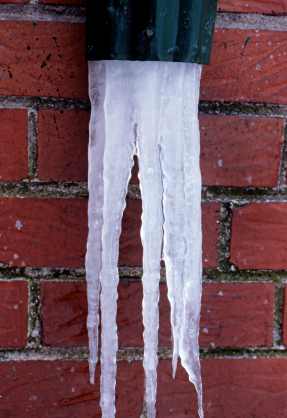 Be sure to tell your tenants: PLEASE DO NOT TURN YOUR FURNACE OFF OR WAY DOWN during this very cold weather!
Be sure to tell your tenants: PLEASE DO NOT TURN YOUR FURNACE OFF OR WAY DOWN during this very cold weather!
It’s amazing (and embarassing) that landlords would have to tell their tenants not to turn off their heat when the weather is freezing, but you may as well learn from our mistakes so you don’t have to suffer what we just went through:
We just had residents on two different properties cause severe and costly damage to the property by turning off their heat “to save money.”
In one apartment, they turned off the heat to save money over the holidays while they were out of town. When they got back in town they called to say that they had no water and their tub drain was backed up…..as in frozen solid! It took our maintenance contractor about five hours to get the pipes unfrozen.
In another apartment, the tenants also turned off their heat over the holidays to save money because they were out of town. When they got back we found out that every single appliance had been frozen and had to be replaced: the water heater, the dishwasher, the garbage disposal and the furnace all were frozen and failed. The cost? Approximately $3,000.00 so these tenants could save maybe $30.00 in heat costs over the holidays. (By the way, the boyfriend had the chutzpah to call and tell us what crappy landlords we were for renting an apartment with all the appliances dead and dying).
Last year we had a tenant who complained that her walls and windows were sweating and causing water damage. Our maintenance contractor found out that she was turning her heat off in the day time while she went to work to save money. This caused the walls and windows to condensate and “sweat” when she came home each night and turned the heat on because the walls the windows were ice cold.
Last year we had another couple who turned their heat down as low as it could go every day when they went to work. Then they would call and complain repeatedly that there was something wrong with their furnace because it kept shutting off. We had several furnace experts come out and inspect the furnace at high costs. The experts figured out that the furnace’s safety mechanism was repeatedly shutting the furnace down because it was working so hard to reheat the apartment that it was overheating itself.
Hopefully, this will help you learn vicariously from our misadventures!


